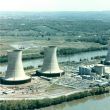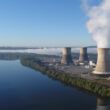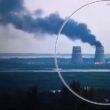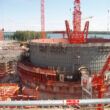How U.S. nuclear energy priorities change with an Obama administration
By Bulletin Staff, November 12, 2008
Last week’s presidential election opens the door to new thinking when it comes to U.S. policies for managing the global growth of nuclear energy.
While viewing nuclear energy “as part of the mix,” President-elect Barack Obama is less supportive of it than the Bush administration. Due to the failure to sufficiently address nuclear waste and nonproliferation issues, nuclear energy technologies are likely to be deemphasized in the Obama administration. Instead, Obama’s international nuclear energy efforts are more likely to be focused on diplomacy, cooperative research, and new economic incentives.
Obama has indicated that he doesn’t favor Yucca Mountain as a permanent repository for spent nuclear fuel. His electoral victory in Nevada and the long-time opposition of Harry Reid, Nevada’s Democratic senator and the Senate majority leader, make it likely that the Energy Department’s effort to move forward with this option will be slowed, if not ended.
As Jill Parillo indicated, Obama favors addressing the buildup of spent fuel at U.S. nuclear power plants by storing the material on an interim basis (100 years or more) in dry casks. He’s also likely to halt the Bush administration’s efforts under the Global Nuclear Energy Partnership (GNEP) to move forward with reprocessing. Instead, he will charge Energy with focusing on basic research until more proliferation-resistant methods can be perfected.
Where Obama is likely to continue the Bush administration’s efforts is internationally. One proposal that might find support is the grid-appropriate reactors that were included in GNEP. These small- and medium-sized plants (typically between 250 and 500 megawatts) are better suited to the limited electrical grids of developing countries than the 1,000 megawatt or larger reactors typically built by major nuclear reactor manufacturers. These reactors could have a nonproliferation payoff as well, since most small- to medium-sized reactors currently built are proliferation-prone, such as the smaller heavy water reactors operated by India.
Obama would also be well-advised to continue and strengthen what’s known as “the attractive offer”–an effort by the United States and Russia to encourage developing countries considering nuclear power to forgo proliferation-sensitive uranium enrichment and spent fuel reprocessing facilities. These incentives currently include financial and physical, human, and regulatory infrastructure assistance. Already the United Arab Emirates, Saudi Arabia, and several other countries have indicated their willingness to make a political commitment to rely on the market for fuel-cycle services, rather than building their own facilities.
In addition to seeking commitments from new nuclear power countries, the Obama administration should beef up incentives for countries with existing nuclear energy programs, which are seen as less prone to proliferation problems. For example, providing countries with less proliferation-sensitive fuel cycle facilities, such as fuel fabrication plants, in return for commitments not to pursue enrichment and reprocessing and to bring into force the Additional Protocol with the International Atomic Energy Agency (IAEA). These agreements give the IAEA greater legal authority within member states–i.e., the right to inspect undeclared facilities.
But such efforts could be undermined if the Bush administration doesn’t convince members of the Nuclear Suppliers Group (NSG), meeting this month, to ban sales of enrichment and reprocessing technologies to states that fail to meet certain criteria. In order to win congressional approval of the foolish U.S.-India nuclear deal, Secretary of State Condoleezza Rice pledged to make NSG approval of certain conditions her “highest priority.” Sales would be barred to countries that haven’t joined the Nuclear Non-Proliferation Treaty, not agreed to the Additional Protocol, or failed to maintain a good nonproliferation record. Suppliers would be discouraged from providing such equipment to states in particularly sensitive regions. If she falls short, though, President-elect Obama should make NSG agreement on these issues his highest nonproliferation priority.
Topics: Nuclear Energy
Share: [addthis tool="addthis_inline_share_toolbox"]













